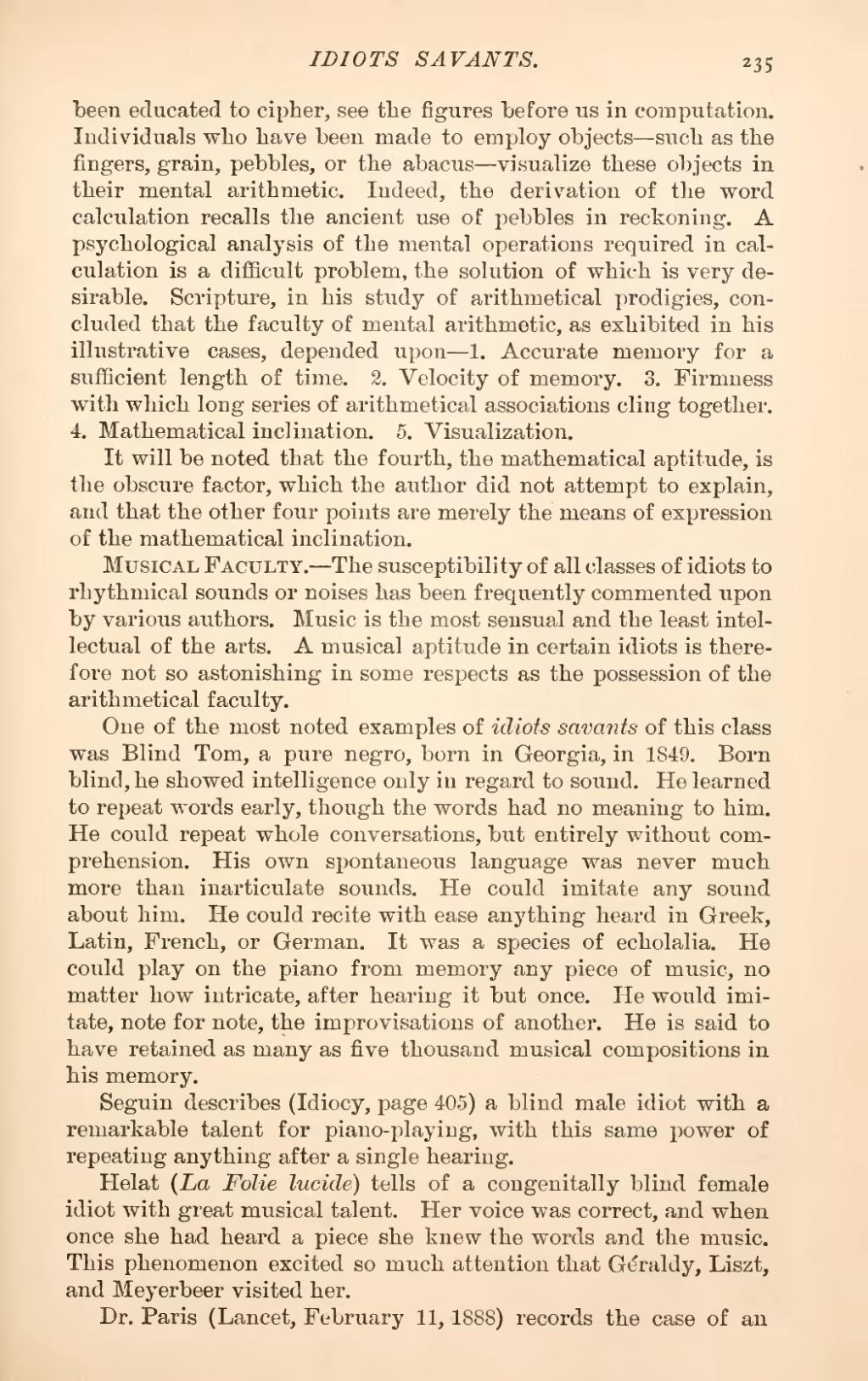been educated to cipher, see the figures before us in computation. Individuals who have been made to employ objects—such as the fingers, grain, pebbles, or the abacus—visualize these objects in their mental arithmetic. Indeed, the derivation of the word calculation recalls the ancient use of pebbles in reckoning. A psychological analysis of the mental operations required in calculation is a difficult problem, the solution of which is very desirable. Scripture, in his study of arithmetical prodigies, concluded that the faculty of mental arithmetic, as exhibited in his illustrative cases, depended upon—1. Accurate memory for a sufficient length of time. 2. Velocity of memory. 3. Firmness with which long series of arithmetical associations cling together. 4. Mathematical inclination. 5. Visualization.
It will be noted that the fourth, the mathematical aptitude, is the obscure factor, which the author did not attempt to explain, and that the other four points are merely the means of expression of the mathematical inclination.
Musical Faculty.—The susceptibility of all classes of idiots to rhythmical sounds or noises has been frequently commented upon by various authors. Music is the most sensual and the least intellectual of the arts. A musical aptitude in certain idiots is therefore not so astonishing in some respects as the possession of the arithmetical faculty.
One of the most noted examples of idiots savants of this class was Blind Tom, a pure negro, born in Georgia, in 1849. Born blind, he showed intelligence only in regard to sound. He learned to repeat words early, though the words had no meaning to him. He could repeat whole conversations, but entirely without comprehension. His own spontaneous language was never much more than inarticulate sounds. He could imitate any sound about him. He could recite with ease anything heard in Greek, Latin, French, or German. It was a species of echolalia. He could play on the piano from memory any piece of music, no matter how intricate, after hearing it but once. He would imitate, note for note, the improvisations of another. He is said to have retained as many as five thousand musical compositions in his memory.
Seguin describes (Idiocy, page 405) a blind male idiot with a remarkable talent for piano-playing, with this same power of repeating anything after a single hearing.
Helat (La Folie lucide) tells of a congenitally blind female idiot with great musical talent. Her voice was correct, and when once she had heard a piece she knew the words and the music. This phenomenon excited so much attention that Géraldy, Liszt, and Meyerbeer visited her.
Dr. Paris (Lancet, February 11, 1888) records the case of an
